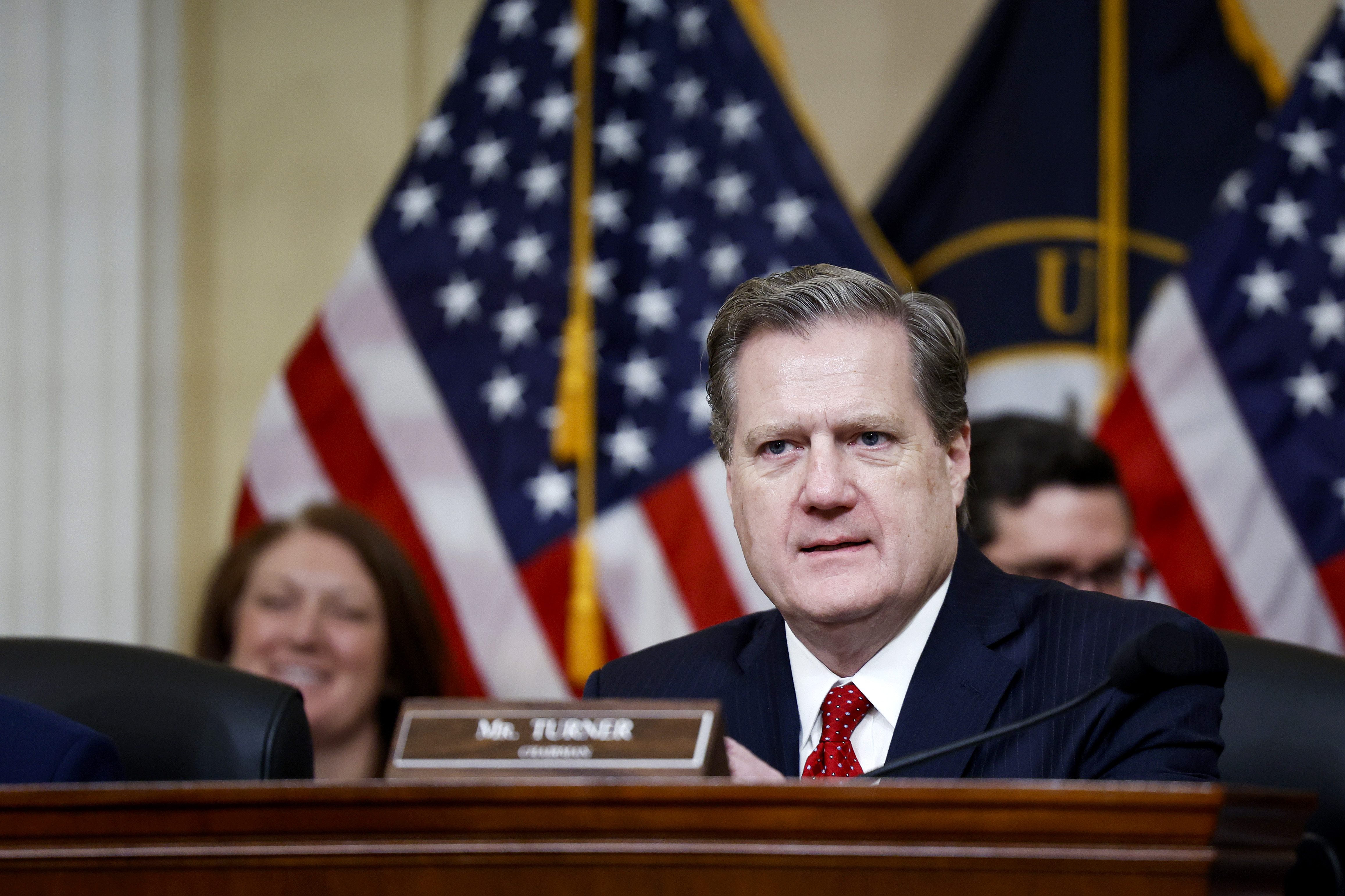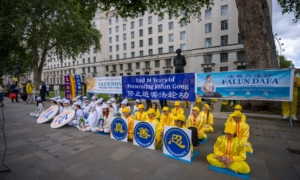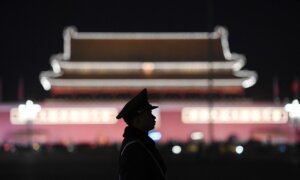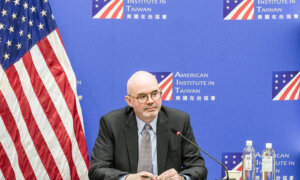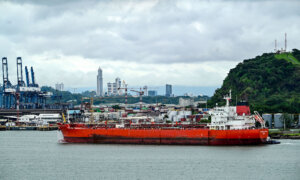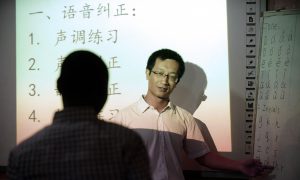The incoming administration will need to “step up to the plate” in addressing threats posed by U.S. adversaries, regardless of who wins the presidential election, according to Rep. Mike Turner (R-Ohio).
Turner, chair of the House Permanent Select Committee on Intelligence, told the Atlantic Council at an event on Oct. 30 that the next president must ensure that U.S. adversaries “see a United States that is going to step up and say, ‘We’re going to not only de-escalate but resolve these conflicts in favor of the United States and our allies.’”
The Ohio Republican said, “China obviously is the most significant threat” that the United States faces, adding that Russia, Iran, and North Korea—which he grouped as an emerging “axis of evil”—are the “most immediate threat” to the United States.
Democratic presidential nominee Vice President Kalama Harris and Republican presidential nominee former President Donald Trump have advocated different approaches toward the Ukraine and Israel wars and China. Regarding China, the communist regime’s unfair trade practices, human rights records, and Taiwan will continue to be among the key issues in the bilateral relationship.
Turner highlighted the alliance between Russia and China, particularly over what he believed to be a hot mic moment in March 2023, when the Chinese Communist Party (CCP) leader Xi Jinping told Russian President Vladimir Putin that the two neighbors were bringing about changes not seen “in 100 years.”
The next administration needs to understand that the increasing defense cooperation between China, Russia, Iran, and North Korea “is a direct threat” to the United States and the West, Turner said.
“These are not small territorial skirmishes. They’re not regional conflicts. This is a much broader conflict. And we have Vladimir Putin and President Xi standing together acknowledging so,” he added.
In contrast to the United States, China has been “modernizing its nuclear weapons and tripling its overall nuclear weapon capabilities,” Turner noted, adding that China’s military capabilities now also include anti-satellite systems and hypersonic weapons.
The Pentagon and Defense Intelligence Agency have said that China currently has more than 500 operational nuclear warheads and is projected to have at least 1,000 by 2030.
In July, U.S. Space Command chief Stephen Whiting said that China has tripled its number of satellites for intelligence and military purposes in the last six years.
China
To be able to confront the challenge, Turner said the next administration will need to spend money on the “deferred maintenance and modernization that needs to happen to the United States’ military systems so that we can have parity with our great power competitors.”That should be followed by turning attention to the U.S. defense industrial base, Turner said, which “is not up to being a deterrence to produce what we need to be able to respond.”
The Commission on the National Defense Strategy issued a report in July noting that the U.S. defense industrial base “is unable to meet the equipment, technology, and munitions needs of the United States and its allies and partners.”
“Addressing the shortfall will require increased investment, additional manufacturing and development capacity, joint and coproduction with allies, and additional flexibility in acquisition systems,” the report says.
In February last year, the Center for Strategic and International Studies said in a report that the U.S. defense industrial base would not be ready for a possible conflict with China in the Taiwan Strait. Based on its war games, the report noted that the United States would expend more than 5,000 long-range missiles, including 400 Tomahwak missiles, in the first three weeks of a potential U.S.–China war.
Turner was asked whether the new administration should abandon the longstanding U.S. policy of “strategic ambiguity,” which means that the United States is deliberately vague on whether it would come to Taiwan’s defense if it were attacked.
“I don’t think that the new administration either will or should do that,” Turner said.
The CCP sees Taiwan as a renegade province and wants to bring the self-ruled island under its control.
Currently, Washington and Taipei are not formal diplomatic partners, but the United States has been Taiwan’s biggest arms supplier for its self-defense.
Last year, CIA Director William Burns said that Xi had instructed China’s military to be ready by 2027 to conduct a successful invasion of Taiwan.
